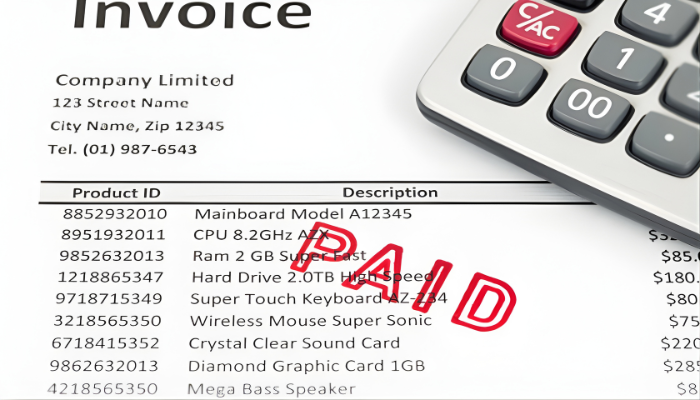
Cashflow is the lifeblood of every business. Some businesses, often small or newly formed, sometimes hit a few potholes on the way to regular revenue generation, especially if they allow delayed customer payment.
The good news is that there is a financing solution for businesses tight on cash - debt factoring, also known as accounts receivable financing, invoice financing, invoice factoring, or invoice discounting.
Debt factoring is an alternative to traditional business loans that require collateral and may take weeks to complete. With debt factoring, a business can sell their invoices and receive cash within one to three days.
Below is an explanation of debt factoring, how it works, who can use it, and the benefits and disadvantages the practice brings to a business.
How Debt Factoring Works
Three parties are involved in debt factoring.
A business sells goods or services and issues an invoice for payment in 30, 60, or 90 days. A customer receives the goods and services, promising to pay the invoice within the time limit specified. A debt factoring company then buys the original invoice from the business and collects payment from the customer.
In a typical debt factoring agreement, a business sells its invoices to a debt factoring company at a discounted price and immediately receives 80% to 90% of the invoice value. The factoring company takes responsibility for collecting the invoice and pays the remaining 10% to 20% back to the business minus fees.
Example of Debt Factoring
Let's say a business sells $100,000 a month of goods or services and gives its customers 60 days to pay the invoice. Customers typically owe an average of $200,000 to the business at any given time — this is labeled receivables.
The business can wait to get paid until the customer pays the invoice, which can take up to two months, or sell the invoice to a factor at a discount for immediate cash.
If the factor pays 90% of the invoice value, the business receives $180,000 within a couple of days. The factor then waits up to 60 days to collect the payment from the customer. When the factor receives payment, it remits the remaining 10% or $20,000 minus a 3% fee. The business gets $14,000. The entire transaction costs $6,000. The business nets $194,000 on $200,000 worth of invoices without chasing payment itself.
This type of factoring agreement is available for many different types of businesses.
Who Uses Debt Factoring?
Any size business can use debt factoring. The typical business using a debt factoring company is small or mid-size, often just starting, and needs liquidity to grow the business and sustain daily operations.
Large companies can also use debt factoring, but they often have cash reserves that cover the time customers take to pay invoices. Banks and insurers also consider large businesses lower risk and provide favorable rates, so they have less trouble securing traditional financing.
Advantages of Debt Factoring
There are many benefits to using debt factoring. It allows companies to release the cash value of invoices more efficiently than by applying for a loan. Also, you don't need collateral.
In a debt factoring agreement, businesses also outsource their collections so they can focus on selling instead of chasing payments. The quick cash lets them reach short-term business goals and increase stability and cash flow.
You can take on more work with debt factoring, continuing your business growth. You can reinvest your cash in marketing and selling, equipment and supply purchases, and other necessary expenses.
What Are the Downsides?
Debt factoring, like any type of financing, does reduce profits and create temporary debt. Even though you obtain operating capital quickly, you also create short-term debt.
Factoring fees vary depending on your circumstances and the factoring company—most charge between 1% and 3% of the overall invoice value for services. Unfortunately, there are some predatory companies out there with hidden fees. Always discuss pricing before entering a factoring agreement.
Finally, not every business may be eligible for debt factoring. Factoring companies determine financing qualification based on the creditworthiness of your customers. So, if your customers have a bad track record of paying their invoices, the factoring company may charge higher fees to accommodate the risk of non-payment.
The Bottom Line
Debt factoring is a method of receiving immediate cash for your invoices instead of waiting for your customers to pay. You can use the quick cash for operations or to grow your business more quickly. Plus, you don't have to manage the collection process.
If you are interested in debt factoring, reach out to a trusted factoring company like Factor Funding. Our experts will walk you through everything you need to know about factoring and help you decide if it’s the right choice for your business.


















